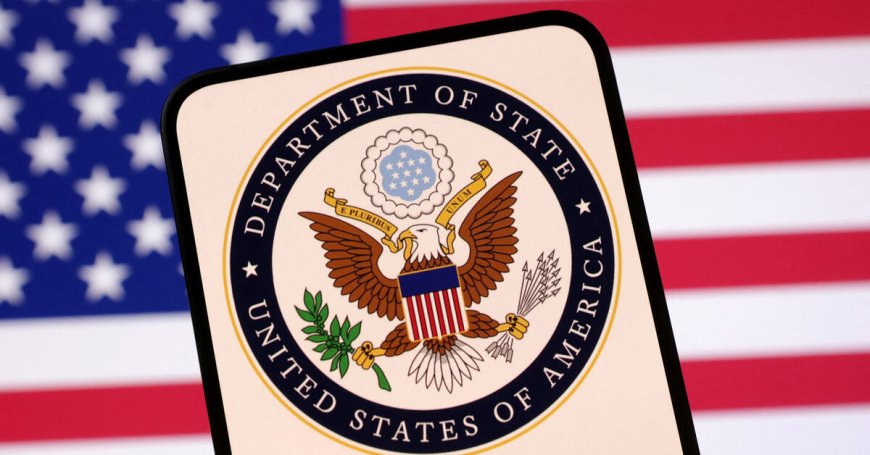U.S. Steps Up Sanctions: How Visa Bans on PLO and PA Officials Escalate Statehood Tensions
The U.S. has announced visa bans on Palestinian Authority and PLO officials, citing support for terrorism and international legal efforts. The move intensifies political isolation amid growing recognition of Palestinian statehood.

A Break in Policy: U.S. Sanctions Target Palestinian Leadership
On July 31, 2025, the U.S. State Department announced visa bans on officials of the Palestinian Authority (PA) and the Palestine Liberation Organization (PLO). This shift marks a stark intensification in Washington’s approach to the Israeli–Palestinian crisis. The restrictions aim to isolate Palestinian leadership by cutting access to the United States, especially high-level U.N. meetings, amid mounting arguments over terrorism support and diplomatic strategy. Wikipedia+15Reuters+15The Washington Post+15
Reasoning Behind the Sanctions
U.S. officials cited violations under the PLO Commitments Compliance Act of 1989 and the Middle East Peace Commitments Act of 2002. These laws require compliance with peace-centric commitments, including renouncing terrorist acts and avoiding actions that undermine negotiations. Al Jazeera+4The National+4Fox News+4
Sanctions accuse the PA and PLO of:
-
Funding families of Palestinian militants (termed “pay-for-slay”).
-
Inciting violence through textbooks and media.
-
Using international legal forums like the International Criminal Court (ICC) and the International Court of Justice (ICJ) to pursue litigation against Israeli officials. The NationalFox NewsAl Jazeera+4AL-Monitor+4Fox News+4
What Travel Restrictions Mean in Practice
The visa bans apply to named individuals from both the PLO and PA, preventing official travel to the U.S. while leaving open the possibility of case-by-case waivers—especially for trips related to the U.N. General Assembly. U.S. officials emphasize exceptions remain feasible under national security guidelines. Wikipedia+15State Department+15Reuters+15
International lawyers caution that these measures risk barring participation in September U.N. sessions—a sensitive venue where several countries plan to recognize Palestine as a state. The Washington Post+3SRN News+3Financial Times+3
A Sharp Departure from Previous Practice
While the PLO remains formally designated a terrorist organization under U.S. law since 1987, past administrations routinely issued waivers for diplomatic dialogue. PA officials, not officially designated as terrorists, continued to travel freely. This sanction move represents a deliberate shift, breaking with past diplomatic precedent. The Washington Post
Context: The Broader Statehood Debate
The timing collides with international momentum. Western governments—including UK, France, and Canada—are preparing to formally recognize Palestine at the U.N. General Assembly in early September. For the U.S., sanctions serve as leverage to discourage diplomatic moves that preempt peace negotiations. Financial TimesPoliticoWikipedia
In contrast, U.S. envoy Steve Witkoff is simultaneously visiting the region to oversee relief operations and help facilitate humanitarian aid amid Gaza’s escalating food crisis. Announcing visa restrictions while pledging aid underscores Washington’s complex balancing act. pbs.org+6The Washington Post+6english.almayadeen.net+6
Regional and Political Repercussions
Israeli Foreign Minister Gideon Sa’ar welcomed the move, lauding it as moral clarity against PA policies he described as promoting glorification of terrorism. He argued such policies undermine recognition efforts and discredit international law claims. The Washington Post+2Fox News+2SRN News+2
Meanwhile, Palestinian officials called the sanctions unfair and punitive—particularly since global diplomatic recognition is part of their international strategy. Citing historical precedent, they argue seeking legal recourse does not equate to breaking peace agreements. The NationalAL-Monitor
Legal and Political Significance
Experts note the legal basis of sanctions under U.S. law is well-established—but the unilateral use of visa bans introduces uncertainty. Critics warn it may stifle diplomatic engagement and political moderation within Palestinian leadership, weakening prospects for constructive peace talks. SRN Newsglobalnews.ca
Conversely, supporters argue that reinforcing compliance with anti-terrorism norms is vital for stability. They see criticisms of ICC or ICJ litigation as clouding pragmatic policy choices. The NationalAl Jazeera
Potential Fallout: What Comes Next
-
Diplomatic Isolation: Reduced access to Washington could undermine the PA’s ability to advocate internationally.
-
U.N. Engagement Limbo: Sanctions may complicate delegate participation at critical U.N. meetings, depending on waivers issued.
-
Fragmentation Risk: Pressure may fracture Palestinian politics between factions advocating legalization versus diplomatic pragmatism.
-
Countermeasures: The PLO might pursue deeper ties with European allies or engage with alternative global forums beyond U.S. influence.
Human Element: Palestinians and Diplomacy
Palestinian officials travel sparingly to the U.S., but frequently engage with European capitals, U.N. institutions, and Arab states. Cutting access further could signal marginalization or desperation—and create pressure to reframe diplomatic efforts outside of traditional channels.
Why This Matters
This policy matters because it underscores how the U.S. defines leadership behavior and support for international justice versus perceived political provocation. It reflects a broader attempt to contain perceived delegitimization of Israeli policy, pushing back on Palestinian agency on the world stage.
For U.S. allies inclined toward recognition, the sanctions serve as both caution and contradiction—inviting political friction at a moment when the international community is pivoting toward statehood affirmation.
Conclusion: A Strategic Gamble
By sanctioning Palestinian leadership visa applicants, the U.S. aims to tighten pressure on the PA and PLO to alter strategies it deems counterproductive. At the same time, the move risks further estranging diplomatic channels during one of the most fraught geopolitical crises in decades.
Washington’s posture here speaks volumes: support for Israel’s narrative of the conflict, pushback on internationalization via legal bodies, and efforts to forestall unilateral state recognition. Whether this strategy reinforces peace or breeds more polarization remains to be seen—especially as September approaches.




















































